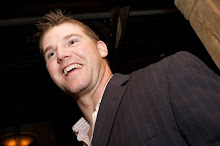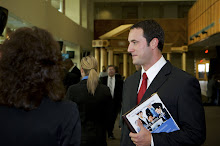
Be Thankful-
Being thankful may be difficult this year. If you have watched the news or read a headline lately you may feel like someone just stole grandma’s pumpkin pie right off the thanksgiving table. Well I’m here to tell you, yes we are in rough times but we're not doomed. Let’s just take a quick look back at the historical context of this great holiday (I was shocked to find it did not revolve around falling asleep at your relatives house while watching football).
Thanksgiving has been a time of celebrating the bountiful fall harvest (that’s why we eat till were sick now). However in early America, there just wasn’t that much bounty to be thankful for (sound familiar). The pilgrims struggled to adapt to the new environment while suffering brutal winters. Their crops failed their hunting skills lacked & they flat out needed help.
That’s where Squanto enters the picture. Squanto taught the Pilgrims how to grow corn & catch eel (I know that’s not on my thanksgiving table either). Essentially Squanto showed the Pilgrims that the opportunities were there they just had to adapt to the current environment. This brings us to today, yes the job market is tough but the opportunities are there you just need to adapt. So think of TheCorporatePlaybook.com as Squanto as we layout a plan to help you find a job in today’s market.
Reality Check- Let’s assess just how harsh this climate is:
Let’s get some numbers for perspective here:
October 2009- What a difference a year makes! Unemployment breaks into double digits 10.2% (unemployment for college graduates over 25 years old 4.7%)
October 2008- Unemployment Rate- 6.5% (unemployment for individuals who hold a college degree is under 4%)
2000- Unemployment reaches lowest level in 30 years 3.9%
1992- Unemployment 7.7%
1982- Unemployment 10.8%
1932- Unemployment 23.6%
Looking at the numbers it appears that we Pilgrims have had harsher winters & yes our situation may get worse before it gets better but I’m confident we are not headed to historical highs. However just a percentage point shift in unemployment does change the level of resourcefulness you will need to apply to your job search.
So I’ve come with a holiday themed acronym to help you find a career & put a positive spin on this Thanksgiving:
We’ll call it how to say THANKS for your career search
T- Timeline- Simply put there are fewer jobs & more candidates. Be prepared for a long protracted search. Know what you have in reserves & how long you can go without pay if you have to. Also understand it may be tempting to simply take a job to gain security, if you know your timeline you can have more flexibility to avoid that temptation & focus on a career move. Putting a timeline in place also provides focused motivation that will keep you on track & not wallowing in self-pity or aimlessly wondering through the job hunt.
H- Homework- Just like a turkey didn’t stuff itself & jump into a Pilgrims lap a career isn’t just going to jump into yours. You must do your homework. Regardless of economic climate you must put the work into your career search. Research the industries, companies & their top management. You need to uncover the following- what am I interested in, what industries align with that interest, is this industry poised for growth, who are the leading companies in this industry & what opportunities do they have. Also determine plans B & C too (what alternative industries & companies should I be looking at that could still develop relevant experience to reach my A plan after the downturn). This homework should include:
Internet data mining- Keep those company websites bookmarked & visit frequently for employment updates. If the company is publicly traded keep tabs on their stock performance.
Industry trade journals & websites- this is where insider information is developed & will help you to understand how those inside think.
Subscribe to industry & company blogs
Focus on niche career websites- the big job sites are useless. You need to thin the heard (no sense in being one in 10 million). Find industry related & skill/background related job boards & aggressively search there.
Get connected to recruiters who specialize in your industry of interest
Revamp your resume & don’t hesitate to seek out advice from professionals
A- Aggressive- There is no room for the timid in this market. You must be direct & persistent in your career pursuit. Passive forms of searching are just not going to cut it. You simply can’t expect to just submit a resume online. Being aggressive means owning your search, hunting & prospecting for opportunities at all times. Don’t just simply apply online do your homework find out who’s involved in the hiring process & send them a letter directly followed by a phone call. Being aggressive means going to every career fair introducing yourself to every recruiter getting their business cards & following up. Also if you visit multiple career fairs you will quickly discover that the same companies & recruiters are there too. So this is more incentive to be aggressive, introduce yourself follow up & see them again at the next career fair (trust me if you do this right they will remember you).
I also want to insert another “A” here Attitude- so much of this is predicated on your ability to stay positive during the search process. I’m a firm believer of what you think & feel will manifest before you. Stay positive it will be tough, so you might as well enjoy it.
N- Network – (There is a difference between social networking & networking socially). Career opportunities are out there unfortunately they don’t always make it to the job boards before they’re filled. So how do you get privy to that opportunity before it’s off the market? Through networking, networking has proven time & time again to be the most effective resource for generating everything from job opportunities, sales opportunities to even friendship opportunities. Being known & knowing people will help you navigate through your professional career. So how do you start?
First you must have completed the TH of Thanks. In order to effectively network you need to have a firm handle on what you want & what you are looking for. This helps to clearly articulate to those you meet how they can help you achieve your goals. Where to network? The short answer is everywhere: Alumni events, sporting events, Chamber of Commerce meetings, trade associations & groups, targeted networking groups (I even know a guy who did his homework to figure where the senior associates/partners at the firm he was trying to get an interview with went for drinks after work & he just happened to be there to buy them a round). The point is networking is closely associated with doing your homework & being aggressive. If you can be direct in knowing what you are looking for (I mean specific industries & companies) tell those you network with exactly that & you’ll be surprised how they can help & who they can introduce you to.
K- Keep Tabs- All the homework, preparation & networking in the world won’t do you any good if you don’t keep tabs. Keeping accurate records will create efficiency in your search. I recommend creating an excel doc that will allow you to track all career opportunities & contacts to a help you manage the process from start to finish, setting timelines for follow-up & responses.
S- Social Networking- As previously mentioned there is a stark contrast between social networking (websites) & networking socially (face to face). Networking socially can really help at a local or regional level, while social networking can build your personal global brand. But unlike face-to-face meetings social networking is somewhat permanent. There are literally dozens of landmines out there that can ruin your career prospects (the monitoring of social networking profiles is becoming common practice in recruiting not to mention the shear number of companies who are directly recruiting off Facebook & twitter). So first order of business is be smart with what your post. Don’t write spur of the moment blog post blasting your company, boss, professor or coach. Don’t write gratuitous profanity or slanderous comments. Just use common sense here, determine whether or not you would care if your potential employer saw (insert: picture, post, comment etc.)
With that disclaimer out of the way, social networking is a powerful tool to build your personal brand, research employers & land career opportunities.
So when active in the hunt step one is to clean up & edit your profiles. Secondly let your status indicate that you are currently looking (unless you are currently employed & looking to make a transition, then more discretion is needed). Third utilize your profile to show your knowledge of the industry, post relevant topics & get involved in discussion groups surrounding those topics.
From a research standpoint the true democratization of information available is absolutely staggering. I recommend everything, specific searches on www.LinkedIn.com to following companies & employees on www.twitter.com to gain inside access. I also recommend joining LinkedIn, Facebook & Ning groups centered on your areas of interest.
Finally be aggressive on these networks, be active in the groups ask questions & invite industry pros into your network leverage these tools & you can quicken the search process. If that doesn’t work you can always use Facebook ads to make employers hunt you down.
Happy Thanksgiving! Remember to say THANKS to your career search.
Best,
Chad Pinkston
The Corporate Playbook


![[Barry Minkow]](http://s.wsj.net/public/resources/images/HC-GC804_Minkow_BV_20081112180053.gif)


![[SB122565810092391275]](http://s.wsj.net/public/resources/images/OB-CP365_boxer0_D_20081102145525.jpg)
![[Peter Buckley]](http://s.wsj.net/public/resources/images/HC-GM937_Buckle_BV_20081102175722.gif)




